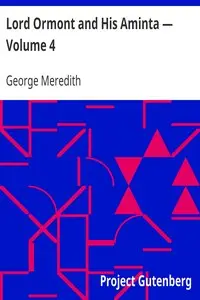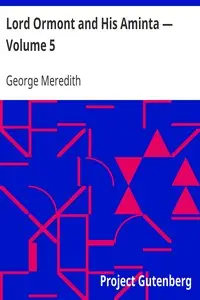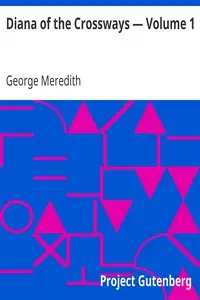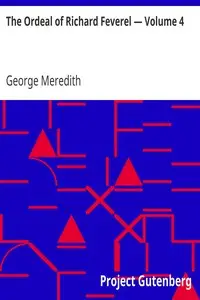"Lord Ormont and His Aminta — Volume 1" by George Meredith is a 19th-century novel exploring love and society through the eyes of schoolboys, especially Matey Weyburn, and his relationship with Aminta Farrell. The story opens at Cuper’s school, where Matey leads a group of boys. During a Sunday walk, noticing schoolgirls stirs conversations about love, honor, and what it means to be a man, igniting feelings for Aminta, whose beauty attracts Matey's attention. The boys had no interest in romance, but can't deny her beauty and character, highlighting the shift in their views. This sets the base for considering ideas on love and how young men grow up in society during that time period.
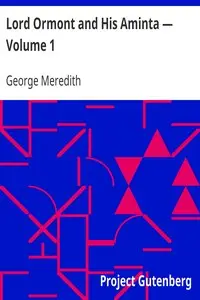
Lord Ormont and His Aminta — Volume 1
By George Meredith
Amidst youthful camaraderie, a schoolboy's disinterest in love fades as he's captivated by a girl who challenges everything he thought he knew.
Summary
About the AuthorGeorge Meredith was an English novelist and poet of the Victorian era. At first, his focus was poetry, influenced by John Keats among others, but Meredith gradually established a reputation as a novelist. The Ordeal of Richard Feverel (1859) briefly scandalised Victorian literary circles. Of his later novels, the most enduring is The Egoist (1879), though in his lifetime his greatest success was Diana of the Crossways (1885). His novels were innovative in their attention to characters' psychology, and also portrayed social change. His style, in both poetry and prose, was noted for its syntactic complexity; Oscar Wilde likened it to "chaos illumined by brilliant flashes of lightning". Meredith was an encourager of other novelists, as well as an influence on them; among those to benefit were Robert Louis Stevenson and George Gissing. Meredith was nominated for the Nobel Prize in Literature seven times.
George Meredith was an English novelist and poet of the Victorian era. At first, his focus was poetry, influenced by John Keats among others, but Meredith gradually established a reputation as a novelist. The Ordeal of Richard Feverel (1859) briefly scandalised Victorian literary circles. Of his later novels, the most enduring is The Egoist (1879), though in his lifetime his greatest success was Diana of the Crossways (1885). His novels were innovative in their attention to characters' psychology, and also portrayed social change. His style, in both poetry and prose, was noted for its syntactic complexity; Oscar Wilde likened it to "chaos illumined by brilliant flashes of lightning". Meredith was an encourager of other novelists, as well as an influence on them; among those to benefit were Robert Louis Stevenson and George Gissing. Meredith was nominated for the Nobel Prize in Literature seven times.


